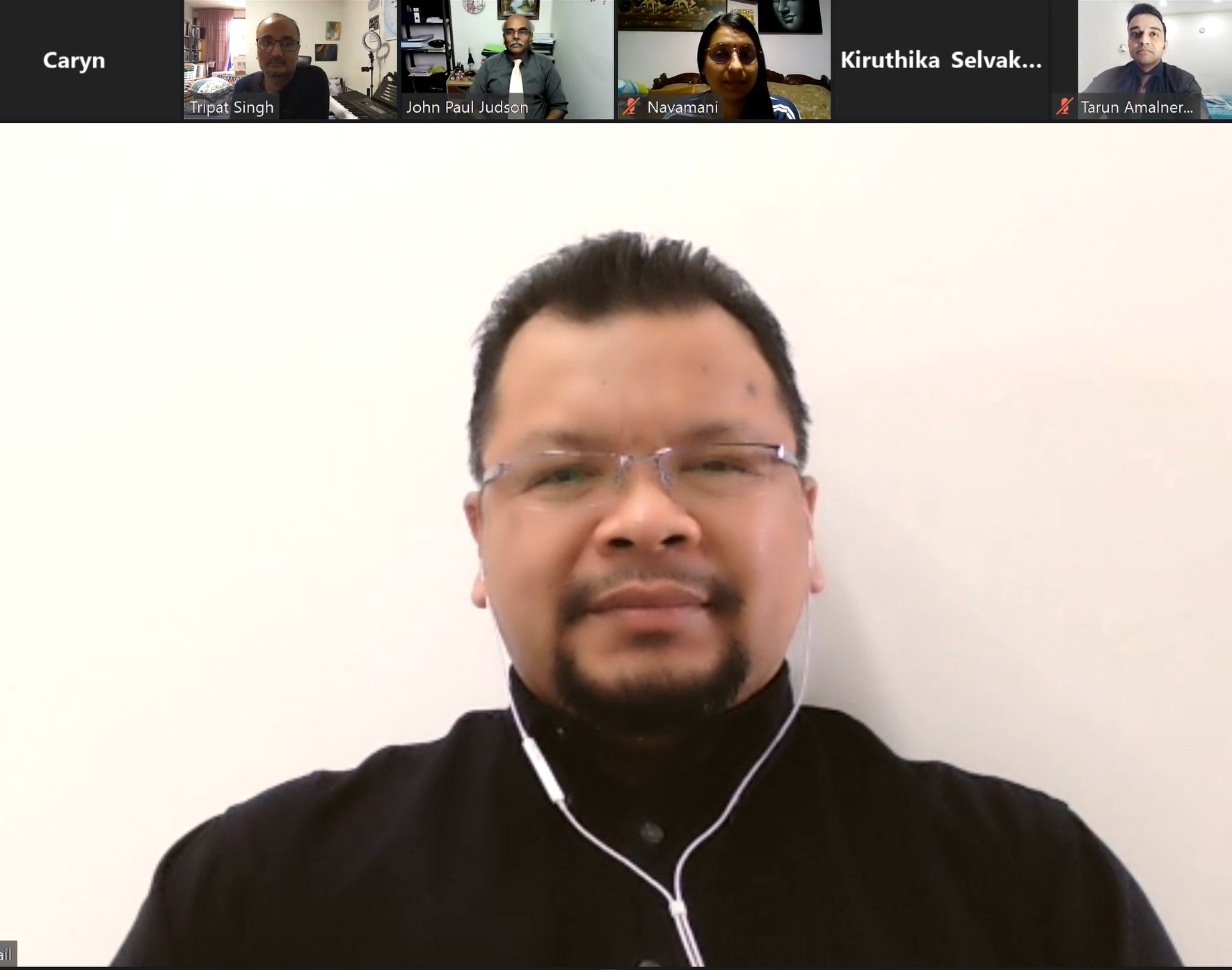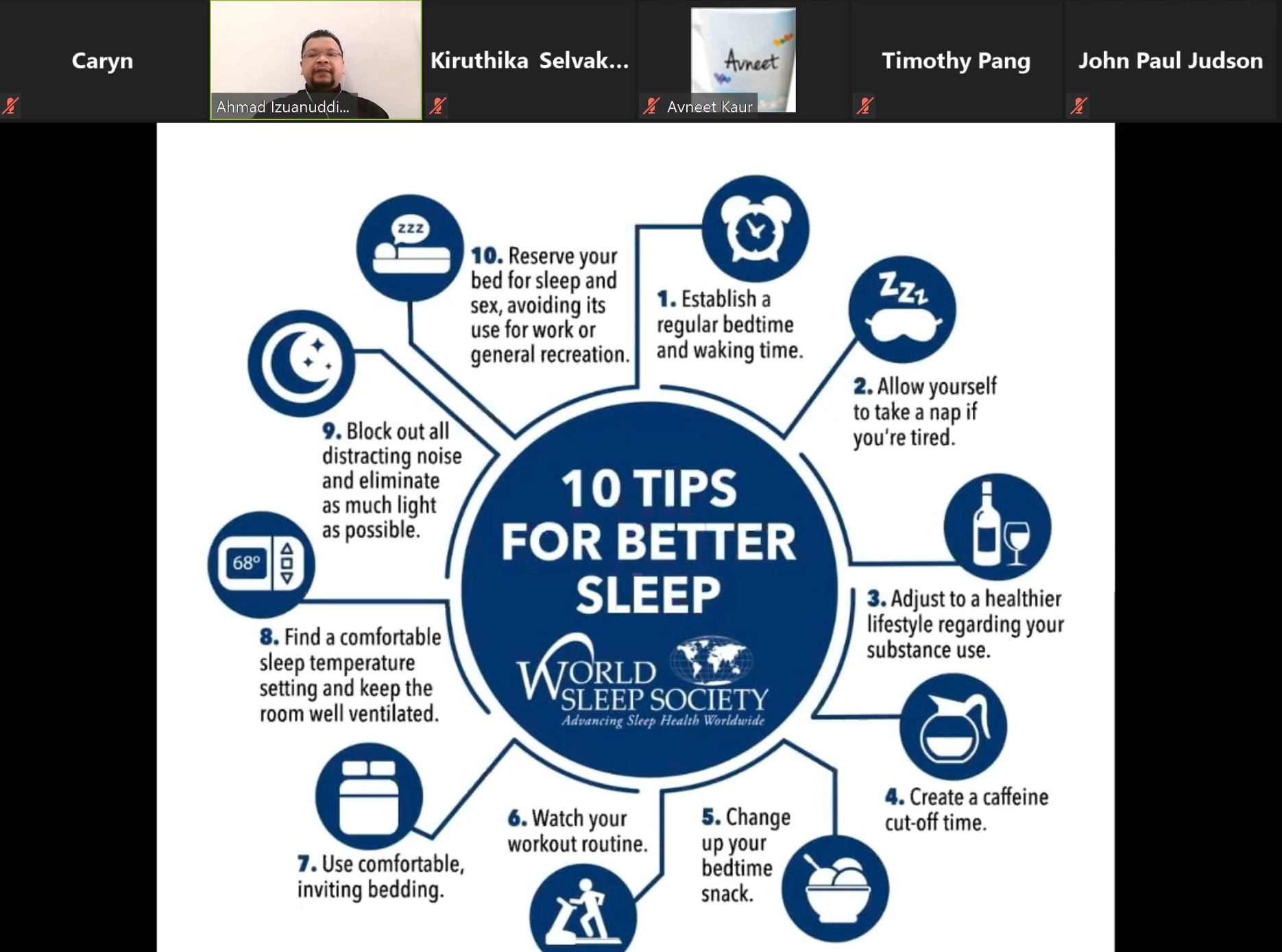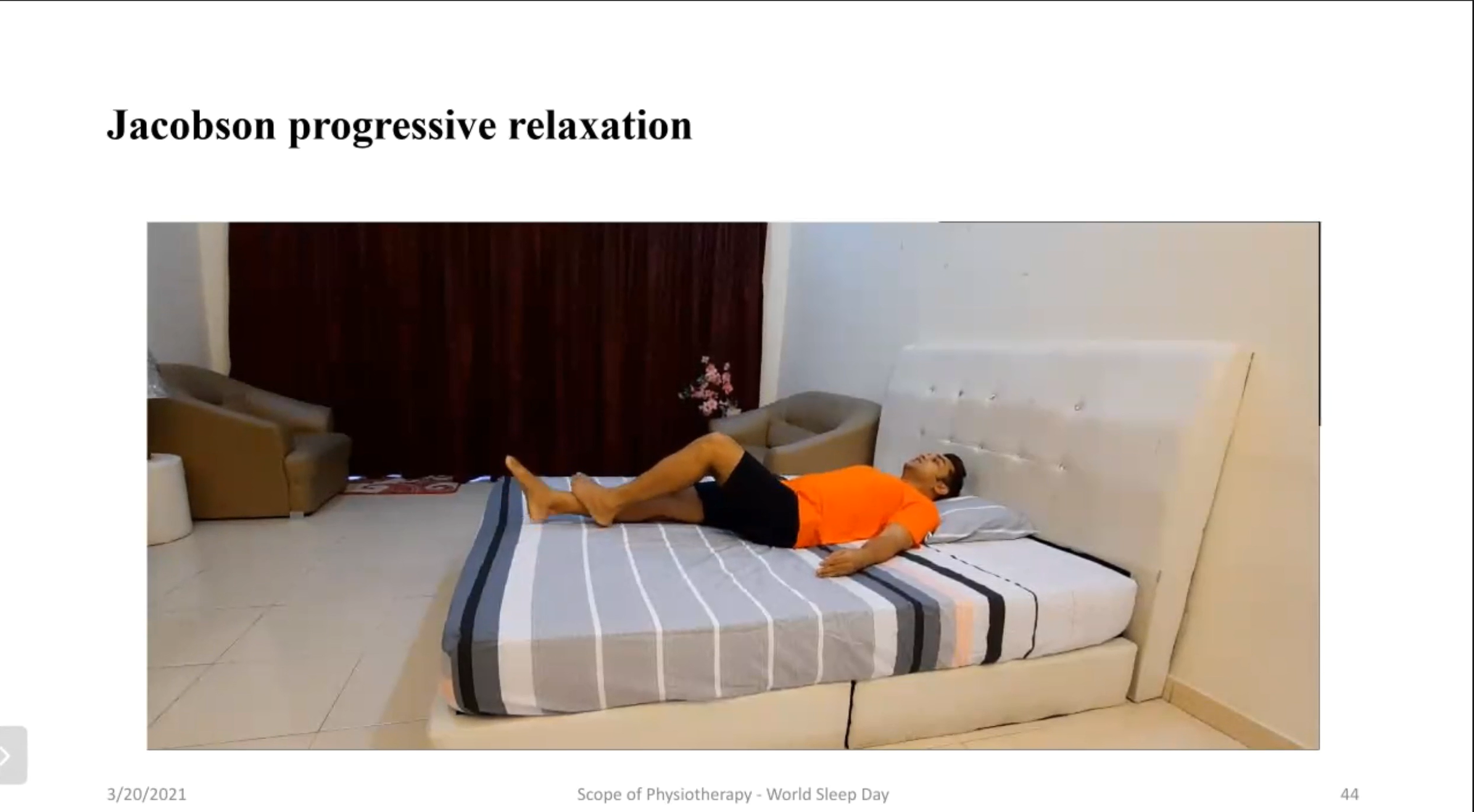

Top row, from
left: Dr Tripat, Prof John, Navamani, Tarun and Assoc Prof Dr Ahmad (bottom)
during the photography session
Do you have
trouble falling asleep? Sleep is vital for health
and well-being but some of us tend to always push it aside.
Scientific research shows the impact
and benefits of having good quality sleep. There are
a number of benefits such as better mental ability, focused concentration,
stronger immune system and a sense of wellbeing. In conjunction with World
Sleep Day, the Centre for Research on Non-Communicable Diseases (CRNCD)
organised a webinar titled “Snooze - To escape the blue”
on 20 March 2021 to discuss the importance of quality and proper sleep and
its impact in our lives as well as how to improve the quality of sleep.
Invited as speakers for the webinar were Sleep Philips, Singapore
Clinical Manager Dr Tripat Deep Singh with his talk titled “Sleep-a wake-up
call for the medical community”, Hospital Universiti Teknologi MARA (UiTM)
Deputy Director-cum-Consultant Respiratory Physician Assoc Prof Dr Ahmad
Izuanuddin Ismail with his talk titled “Sleep and Covid-19 pandemic, towards
regular sleep for healthy future”, Faculty of Medicine and Health Sciences
lecturer Tarun Amalnerkar with his talk titled “Scope of physiotherapy” and
UTAR Department of Student Affairs Counsellor N. Navamani with her talk
titled “A counselling perspectives on sleeping”.
In the webinar
which saw more than 50 participants, Dr Tripat presented some facts on sleep
disorders, sleep pattern and sleep education in Malaysia as well as some
related research. He said, “There are more than 84 types of sleep disorders
according to the international classification of sleep disorders and it is
divided into six categories, namely insomnia, sleep-disordered breathing,
hypersomnolence of central origin, circadian rhythm disorders of sleep and
wakefulness, parasomnias and movement disorders.”
“Malaysia needs
a wakeup call on sleep as sleep disorders are prevalent in different disease
states among Malaysian population and the population-based estimation of
prevalence of sleep disorders need to be done. Students are experiencing
disturbing sleep and nap patterns, thus community education regarding
healthy sleep needs to be done. Topics regarding sleep physiology and sleep
medicine need to be included in the medical curriculum while general
practitioners need to be included in the care of obstructive sleep apnea
(OSA). We also need to develop alternate models that could boost confidence
in treating OSA. Sleep Disorder Society Malaysia should continue to do the
good work to develop sleep medicine in Malaysia,” added Dr Tripat.

Dr Ahmad
sharing tips for better sleep
Dr Ahmad shared
a survey, “Having a regular sleep routine helps to ensure healthier future.
A lot of research was done during the Covid-19 pandemic, a survey of 2,000
American respondents found they had less sleep in 2020, averaging 5.5 hours
of sleep per night as compared to 6 hours in 2019 as more than 50 per cent
of the2,000 participants experienced insomnia during the pandemic and
increased vivid nightmares.” Dr Ahmad also spoke about screening procedures
adopted before access to the sleep laboratory, sleep disorders, quality
sleep elements, OSA and its effect on health issues, tips for better sleep
and other related research studies.
“The three
elements of good quality sleep are duration, continuity and depth. Duration
is the length of sleep which should be sufficient for the sleeper to be
rested and alert the following day while continuity is the sleep cycles that
is seamless, without interruption and dept is where the sleep should be deep
enough or sound to be restorative and refreshing. Make it a point to
establish a technology timeout before bedtime,” explained Dr Ahmad.
In Tarun’s session, he emphasised on the importance of sleep especially among students using one of his (Khor Jia Hui & Swapneela Jacob) research titled “Knowledge, Awareness and Prevalence of Insomnia among Physiotherapy students” as the study showed there is a need to improve knowledge and increase the awareness of the students. He said, “Meeting deadlines, demands, ability to cope, attitude towards life and stress are some of the many factors that affect the quality of sleep. The benefit of having good sleep includes boosting one’s immunity and mental well-being, preventing diabetes, heart disease and keeping one slim.” Initiatives such as organising campaigns, sleep workshops, sleep awareness programmes and education may improve awareness, knowledge among the participants. Tarun has also demonstrated some techniques and stretching methods.
Navamani shared
some case studies about students encountering sleeping problems due to
unsolved problem, environmental issue, personality and self-value, mental
health issues as well as physical issues. “As a counsellor, it is important
to let the clients share their emotional feelings; be a good listener; be
non-judgemental while encouraging the clients to speak and provide space to
share clients’ private thoughts. We also provide therapy session such as
expressive arts, inventories, relaxation therapy to help the clients to
sleep better. Aside from that, we also work with other professionals to help
develop the clients’ self-value,” said Navamani.
Aside from
that, Navamani spoke about the concept of perception, emotional intelligence
quotient, interpersonal skills, developing self-actualisation, Leonard
Personality Inventory (LPI) Holistic Model, hypnotherapy and principles of
life. “The first principle is— nothing in this universe can exist for
itself, happiness is a guaranteed by-product of complying with the first
principle,” added Navamani.
FMHS Dr John
Paul Evangel Judson said, “I would like to thank all the speakers for
highlighting the importance of sleep. The CRNCD has a strong commitment to
the health of the community and the prevention of non-communicable disease,
so today’s webinar fits with our centre’s aim. Each of us needs to cultivate
our own regular sleep pattern in order to have a healthier life,” during his
closing remark.


Wholly owned by UTAR Education Foundation Co. No. 578227-M LEGAL STATEMENT TERM OF USAGE PRIVACY NOTICE